For the last several years, the city of Detroit has been focused on revitalization, improving or creating housing, businesses and infrastructure. That growth includes the arts, which has a rich history in the city. Detroit Public Theatre is both a symbol of how far city renewal has come, and an institution doing its part to improve the local economy and lives of its neighbors.
Detroit Public Theatre is fairly new to the local scene, celebrating its tenth anniversary this year. However, the theatre has already made a significant impact, creating many job opportunities for local artists in a city on the rise.
"We felt like the city of Detroit needed a regional theatre that would feel like an anchor theatre," said Sarah Clare Corporandy, one of the company's three founders and producing artistic directors. "A lot of us who were Michiganders studied here but left to work, and we wanted to bring people home and contribute to the landscape that was already here for more jobs."
Take Equity member Erik Hernandez. Hernandez grew up in the Detroit suburbs and left in 2012 to start college. He had a personal connection to one of the theatre's leaders, and when he was looking to make a transition in his career from musicals to more straight plays, he reached out, ultimately booking a role in their production of Clyde's this year. A role in Fat Ham quickly followed.
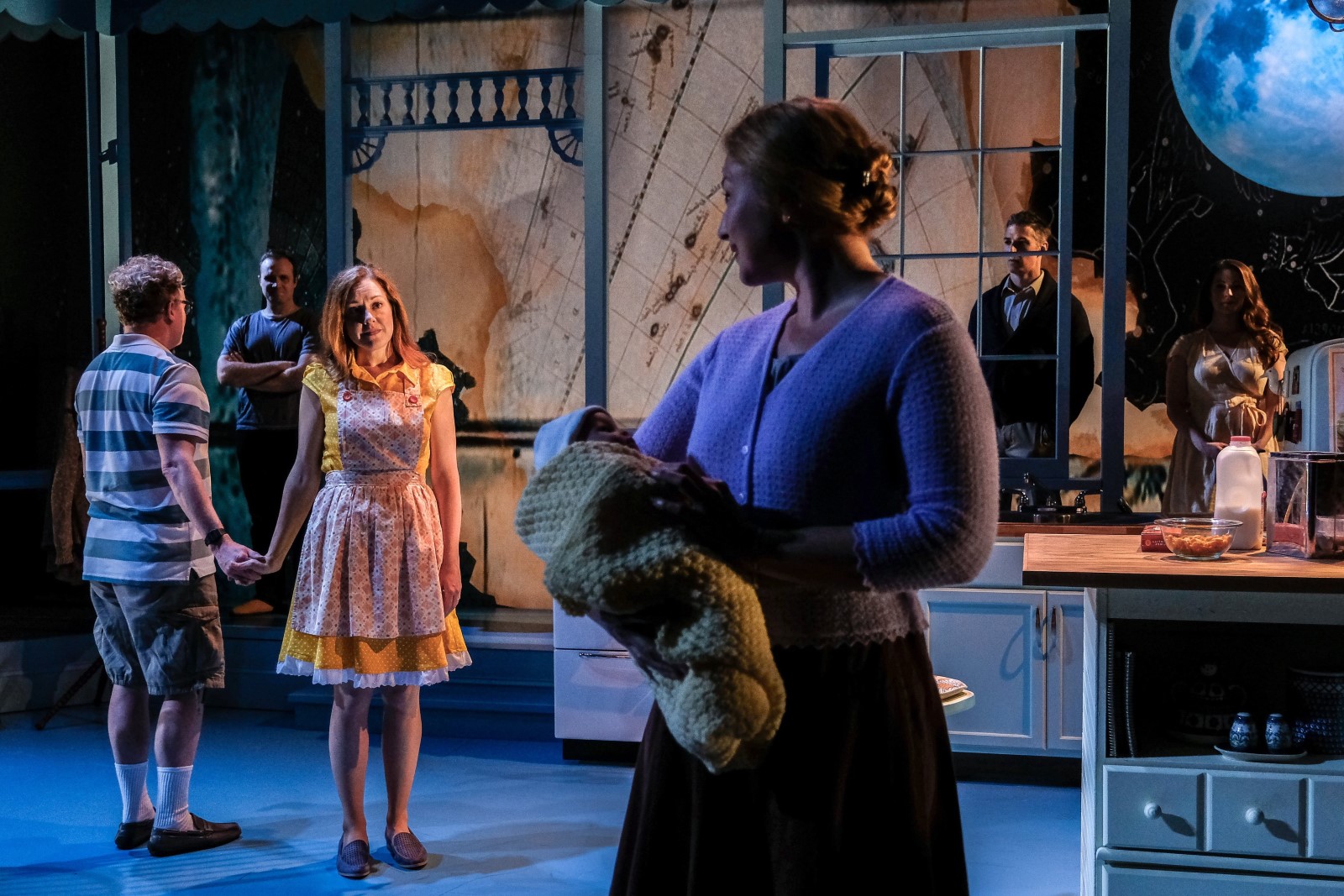
From left: Equity member Daniel Pearce, Christopher Corporandy, Equity member (and Eastern Principal Councilor) Clarie Karpen, Hallie Bee Bard, Equity member Michael Brian Ogden and Equity member Dani Cochrane in Birthday Candles. Photo by Chuk Nowak.
"It's crazy – I've been from this area and spent a lot of time here but didn't realize how much good theatre is going on," he said. "Detroit Public Theatre is what's brought me back here and what's gotten me involved in this specific scene."
Hernandez moved back to Detroit this spring (and his parents moved into the city proper), and he now considers it his home base, even as he continues to work across the country.
"There's quite an art scene in general here, but specifically theatre and really good plays," he said.
"There's nothing like doing a show in your hometown and your family and friends being in close proximity and being able to attend and support," said Equity member and Detroit native Arielle Crosby.
Detroit Public Theatre's ascension in some ways has been swift, in just a few years establishing itself as a mainstay of serious local theatre, but it has not been without hurdles. Every theatre dealt with profound disruptions during COVID, but for DPT, the timing of the pandemic was surreal. For the first few years the theatre operated in a black box in a symphony rehearsal space, and as they grew, they looked for a new venue. The board meeting to approve moving forward with building plans had been scheduled for March 13, 2020.
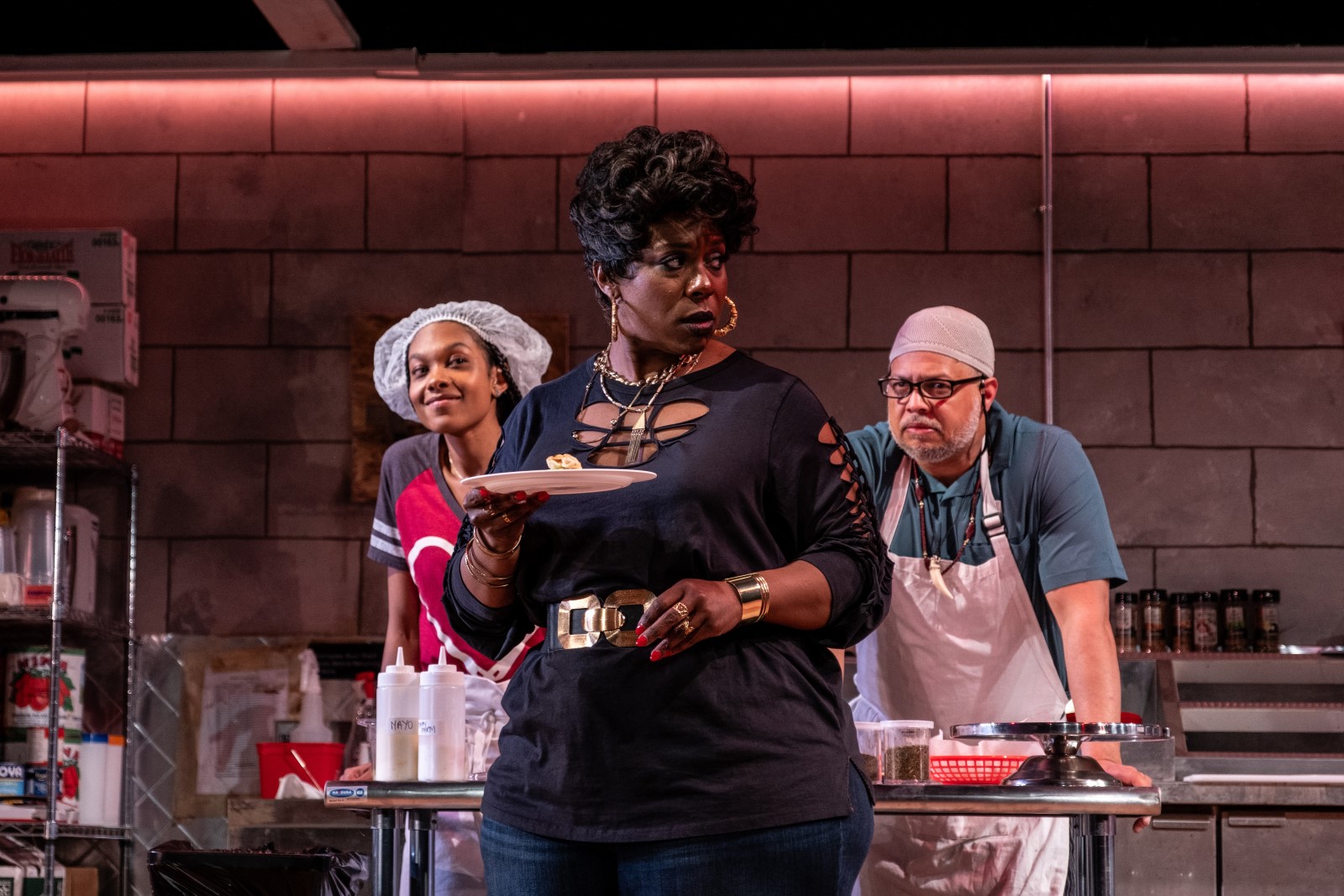
From left: Marie Muhammad, Equity member (and Central Principal Councilor) Kelli Crump and Brian Marable in Clyde’s. Photo by Chuk Nowak.
In the end, the new theater opened for the 2022–2023 season, out of a transformed century-old garage in midtown Detroit. A spacious lobby leads into a 3,000 square foot black box that usually seats about 200–250, but the layout changes a lot from production to production. The space is intimate and is well-equipped, which Corporandy says is rare in Detroit, and the company has created opportunity for other artists to use the space - just as they used the space at the Detroit Symphony Orchestra in their first five years. DPT has a residency program that gives partially and fully subsidized space to artists and non profit arts organizations. The space also is available for rentals and has hosted other events such as theatre and dance productions, panel discussions, poetry jams, weddings, birthday parties and film premieres.
Its budget and audience sizes remain modest, but the transition to the new, welcoming location is a manifestation of how it creates great art with finite resources. Equity members who work there are energized by the theatre's ambition to tackle important topics in its productions, as well as to remain rooted in the local community. Seasons nine and ten have included or will include irreverent holiday cabarets, as well as serious plays about the legacies of slavery and the Holocaust and the reality of gun violence in the United States today.
"I like theatre that has stories and characters who look and act like what I see in the world around me," said Kaden Nelson, an Equity member and Central stage manager councilor. "I like theatre that's about real people and real situations and real experiences, that doesn't shy away from talking about tough topics… this is why the type of work that they do [at DPT] is really meaningful for me. They're working hard to be mindful of where they are in the world and the country and what is their own backyard."
That backyard includes DPT's neighbors; the theatre is deeply committed to making it possible for locals of Detroit and the suburbs alike to come to the theatre.
"It is a truly inclusive and intentional space," said Crosby. "They don't just talk about 'doing the work,' they are actively doing it. They make great strides to ensure that they are a part of and including the community they are occupying space in."
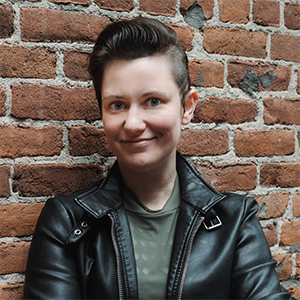
Equity Central Stage Manager Councilor Kaden Nelson.
Playwright Dominique Morisseau, who has been engaged with the company as an artist since the founding, is a board member and joined the theatre as executive artistic producer in 2020. She is from Detroit and often features the city in her work. In one DPT community program, the theatre brings in social studies classes from local public high schools to study a Morisseau play, see one or more shows at the theatre and participate in sophisticated talkbacks. And there are a number of ways to get discounted tickets, to encourage more diverse audiences to attend. Furthermore, beyond accessibility of the tickets themselves, the culture of the theatre is inclusive and inviting.
"As a patron, I absolutely love the statement on the wall before you enter for any show [Dominique Morisseau's Rules of Engagement] that gives people permission to (and encourages them to) interact with the art," noted Crosby. "I am a Black woman, and I am very vocal when I go see shows. And a lot of my fellow Black folks (and many POCs) are the same way. So it's great to be in a space where you are not judged for being who you are."
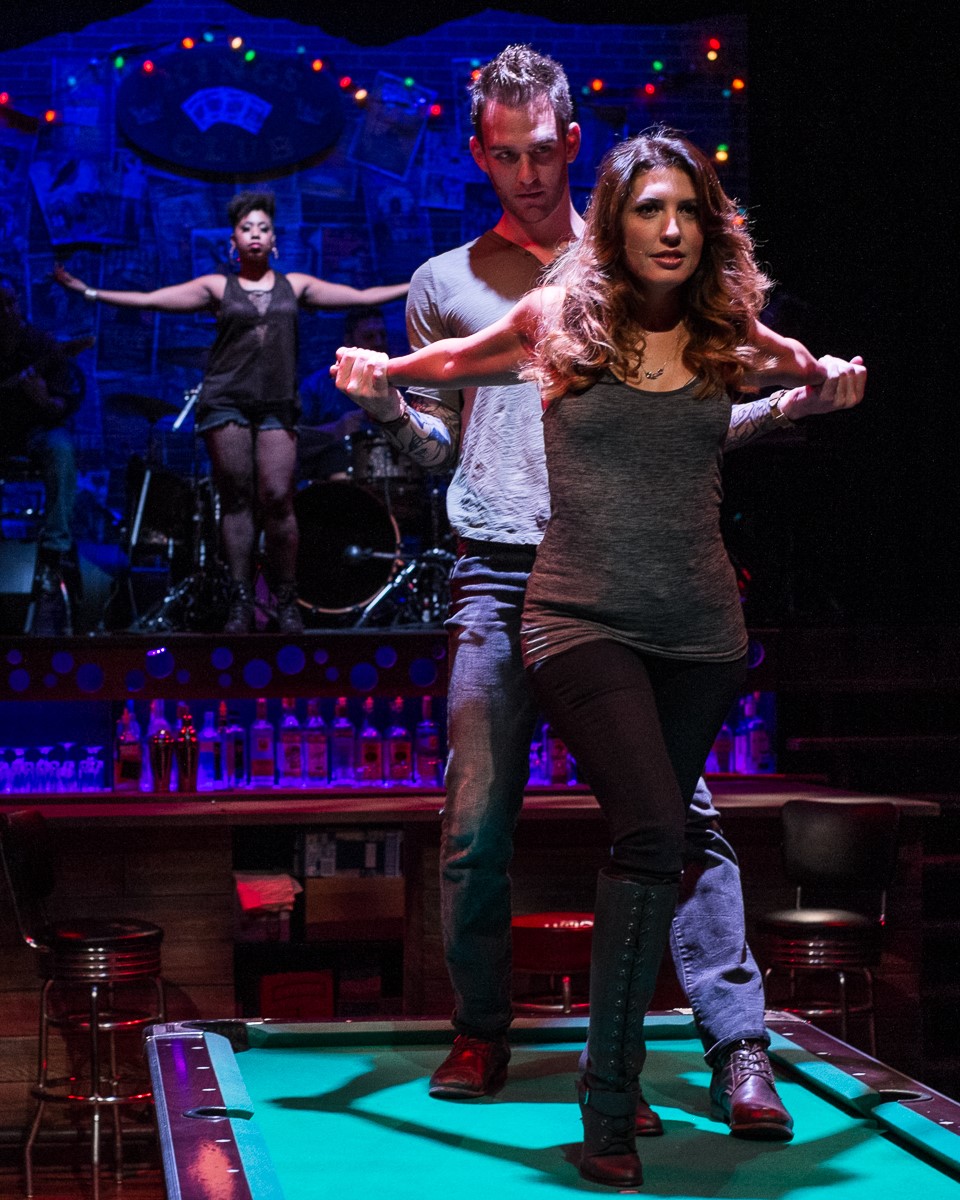
From left, Equity member Arielle Crosby, Equity member Rusty Mewha and Arianna Bergamschi in Murder Ballad. Photo by Chuk Nowak.
The company also takes a great deal of pride in its Shakespeare in Prison (SIP) program, run at the Women's Huron Valley Correctional Facility – the only women's prison in Michigan. The theatre supports incarcerated people as they select a show and take on all aspects of production. More recently, DPT has launched an alumni program to continue working with past SIP participants when they get out of prison. Equity members have participated as coaches or facilitators in both the high school and prison programs.
Hernandez recalled during the rehearsal process for Clyde's, a play about formerly incarcerated people, alumni and partners of the Shakespeare in Prison program came in as cultural consultants.
"To see the humanity of these people is something that I've never gotten to do in any production that I've ever done before," he said. "That's not something that [DPT] had to do but something that they felt would serve the performance and serve the community."
Detroit Public Theatre's commitment to the local community is also a professional one, and they hire and rehire artists who live in the greater metropolitan area.
"They actively seek local talent (actors, directors, playwrights, musicians, etc.) and put them in the forefront," said Crosby.
Frequently hiring from the local talent pool relates to another way Detroit Public Theatre makes the most of finite resources: listening to what everyone has to say and inviting them to contribute. Equity members cite the co-leadership model of the producers as creating an egalitarian feeling. Not only does everyone in the room have a voice, but it is common for an artist hired for one job to later be rehired for something completely different when producers learn a worker has other talents that could work for a production. The theatre has staged multiple shows written by actors who have performed in their own or other pieces, for example. Or there is Nelson, who has stage managed about fifteen productions at DPT, and has also worked there as a costume designer – another professional role they often fill in theatre. And Equity member Eric Gutman has music directed multiple productions in addition to working as a performer.
"The people they have working there just wear so many hats," said Gutman. "They are always up for collaboration, they are always up to use people's talents in any way that they possibly can to showcase themselves, to showcase the theatre."
Equity members also shared that the employers recognize that workers who do the best work are fairly treated and compensated. The theatre has never done 10-out-of-12s, for example, and operates on a five-day work week. Nelson noted that all the founders are parents.
"They all have a personal relationship with the reality of being a caregiver in the arts and how that influences people – and what that means for how to support them," they said.
For Equity members at DPT, these protections are built into the Collective Bargaining Agreement; the theatre has operated on the Small Professional Theatre Agreement since the very beginning. This was a principled choice; employers see their ongoing relationships with Equity and other theatrical unions as part of community-building.
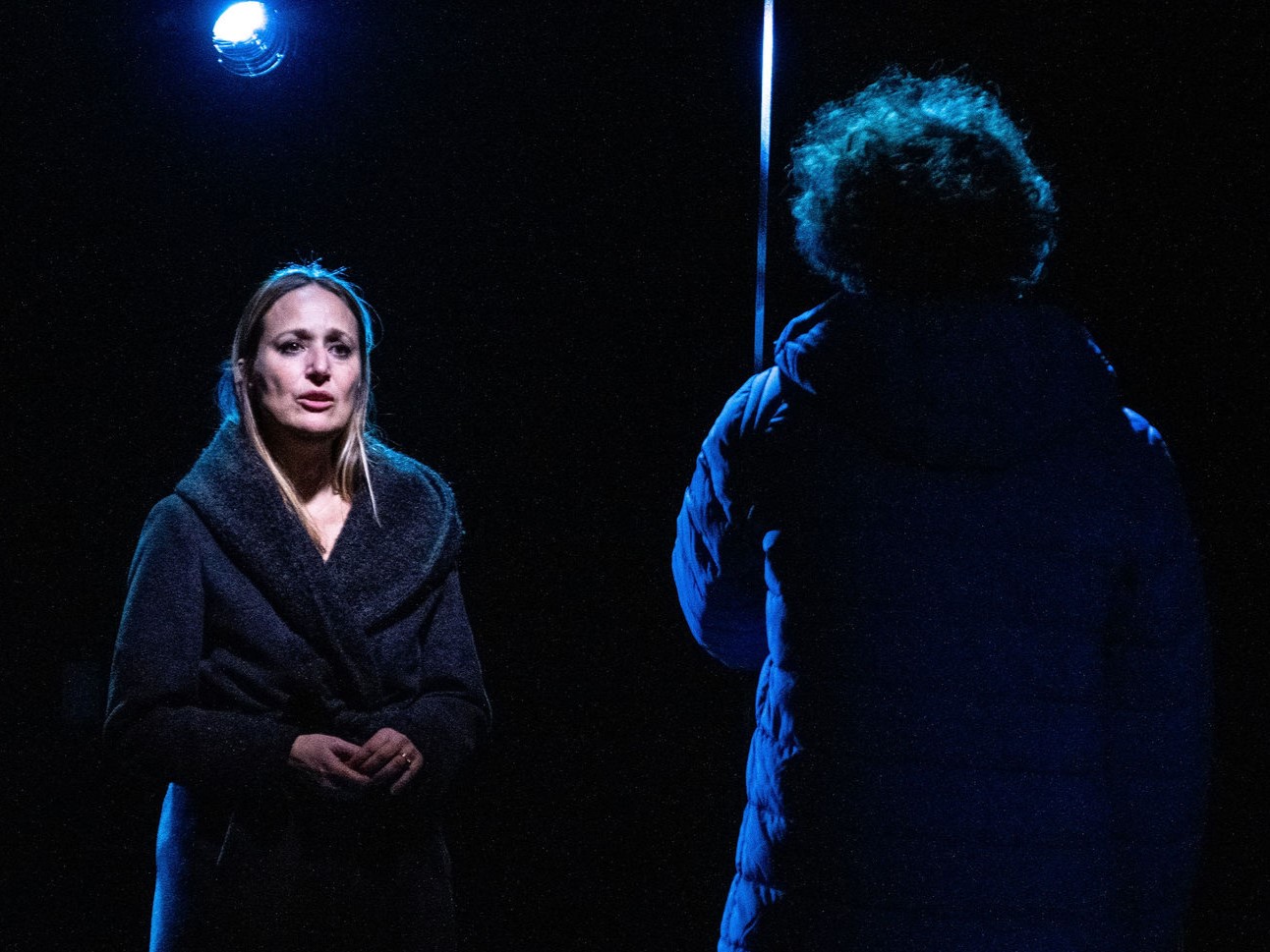
Equity member Heather Raffo (left) and Moogie Fawez in Noura. Photo by Chuk Nowak.
"This is a professional theatre that is working to pay professional wages and help sustain a professional arts community," said Corporandy. "We want to contribute to that in a real way. Working with the unions is a big part of that."
"They operate like any other major theatre that I've worked at, in some cases even better," said Hernandez, citing not only employers' attentiveness to workplace safety but their responsiveness to worker concerns. "It feels very world class."
As Detroit continues to grow, local Equity members have more job opportunities in a more and more vibrant arts scene. Those who have worked at Detroit Public Theatre are confident that the company is going to continue to play its part, and continue to be an excellent place to work.
"They just dream really big," said Nelson, who started working with the theatre in its very first season. "A lot of people start small, with 'Let's start at this one thing and then see how we expand.' They have had big dreams from the very beginning, and it's so exciting to see them rise to the challenges they set for themselves, then go beyond what anyone thought was possible for Detroit and theatre in general."
"I think they're just trying to bring as much added culture as we can as Detroit continues to flourish and grow," said Gutman. "If you want to see some good and important and respected and honest theatre, then Detroit Public Theatre is truly the place to go."
Banner image, from left: Equity member Alexander Pobutsky, Brian Marable, Marie Muhammad and Equity member Erik Hernandez in Clyde’s. Photo by Chuk Nowak.
